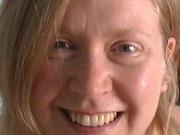The professional literacy blues

Ever been in a bad relationship with a good person? It’s all gone sour, but you can just about remember why you fell in love with them in the first place so you keep sticking it out, hoping things will change. You might daydream about them leaving you and how brave you’d be in the face of that inevitable pain. Or is that just me?
In these turbulent times, it doesn’t take a crystal ball to figure out that further education is going to face five more uber-tough years and we’re not likely to stop rolling with the punches any time soon. Our tortured sector has taken so many hits that as educators we’re virtually out for the count. Like that bored and tormented couple, we drag ourselves out of bed at the start of each week, wanting it to all to be over. It’s hard to cling to a pedagogy of hope in these dire days.
But we must. What’s happening here is a terminal case of low professional self-esteem and nobody is going to fix that for us if we don’t take up the reins ourselves. We are victims of ideology, passively awaiting the next indignity with maybe a bit of deskside moaning to keep us feeling miserable. Yes the work we love is going to hell in a handcart. Yes we find ourselves constrained and tormented by ‘market values’. But we need to get out there and inflict ourselves – our values, our passions, our creativity – on the world, instead of waiting to be done to.
I love a good rant, but when I hear teachers’ voices raised in public there’s a negative, reactive, often fatalistic tone. We are so downtrodden that we choose to believe we have no power. Or that we only have the power to be subversive, to dance when nobody’s looking. Inevitably, that’s a self-fulfilling prophecy. In her chapter for ‘Further Education and the Twelve Dancing Princesses’, Rania Hafez wisely identifies what’s at the sorrowful heart of our loss: autonomy, authority, trust. Powerful elements of professionalism, which have been eroded over the past twenty years. But that doesn’t mean we have to be cowed by these acts of vandalism.
If adult education is to have any meaningful future, educators must take control of their own professional literacy; in fact it should be mandatory for any teacher education programme to model how to do this, rather than the jaundiced passivity, which is often what’s passed on. Professional literacy starts with that fire in the pit of the belly that almost certainly got you into teaching in the first place. In adult education that’s almost always the desire to ‘pass something on’, ‘give something back’, ‘make a difference’ (let’s face it, it’s not likely to be for the zero-hours contract). Making that early connection with deeply-held values (whether or not they are the values of your organisation) is what will keep you doing what’s right in the face of provocation. When values are satisfied, integrity is present. Pay attention to what it’s telling you.
Professional literacy is also about knowing the history of your subject: all its histories, not just the “white curriculum” that’s easiest to find. Seek out the hidden corners and silenced voices of your specialist area; don’t be told how to teach, or tell yourself it’s not possible to do interesting work against a background of dull-as-ditchwater qualification structures. It’s about joining with others in communities of praxis, on and off-line, to take strength from one another. It’s about dancing in the middle of the fighting – as Rumi wrote – even if it’s in your own blood. If you’re not up for that, if you think it’s OK to churn out useless qualifications and squander young (and not so young) hopes, should you really be teaching?
In this post-election gloom, when maybe the least educators hoped for was that febrile breathing space before a coalition is announced, Owen Jones talks about a politics of hope. We know that for today’s politicians, further education is where other people’s children go, to get their ticket to work. They don’t have the privilege we have, of what education can really be. Yes it’s hard to imagine an education of hope right here and now, but that’s what each of us should be about. After all, who’s going to make it happen if not ourselves?
Lou Mycroft is a teacher educator at The Northern College in Yorkshire. She teaches social purpose education grounded in professional values and rails against the sausage factory of the ‘skills system’. Lou is one of the authors of ‘Further Education and the Twelve Dancing Princesses‘






Responses